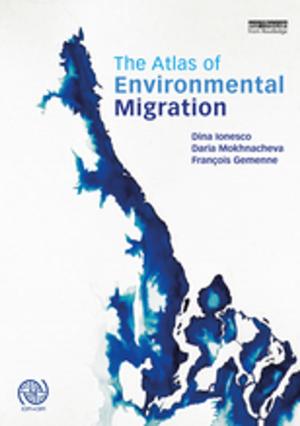Critical Theory of International Politics
Complementarity, Justice, and Governance
Nonfiction, Social & Cultural Studies, Political Science, Government, Civics, International, International Relations| Author: | Steven C. Roach | ISBN: | 9781135173685 |
| Publisher: | Taylor and Francis | Publication: | May 13, 2013 |
| Imprint: | Routledge | Language: | English |
| Author: | Steven C. Roach |
| ISBN: | 9781135173685 |
| Publisher: | Taylor and Francis |
| Publication: | May 13, 2013 |
| Imprint: | Routledge |
| Language: | English |
Critical international theory encompasses several distinct, radical approaches that focus on identity, difference, hegemonic power, and order. As an applied theory, critical international theory draws on critical social theories to shed light on international processes and global transformations. While this approach has led to increasing interest in formulating an empirically relevant critical international theory, it has also revealed the difficulties of applying critical theory to international politics. What are these difficulties and problems? And how can we move beyond them? This book addresses these questions by investigating the intellectual currents and key debates of critical theory, from Kant and Hegel to Habermas and Derrida, and the recent work of critical international theory, including Robert Cox and Andrew Linklater. By drawing on these debates, the book formulates an original theory of complementarity that brings together critical theory and critical international theory. It argues that complementarity—a governing principle in international law and politics—offers a conceptual framework for working toward two goals: engaging the changing contexts and forms of resistance and redressing some of the difficulties of applying critical theory to international relations.
In adopting three critical perspectives on complementarity to analyze the evolving social and political contexts of global justice, this book provides an essential resource for undergraduate and graduate students and scholars interested in the application of critical theory to international relations.
Critical international theory encompasses several distinct, radical approaches that focus on identity, difference, hegemonic power, and order. As an applied theory, critical international theory draws on critical social theories to shed light on international processes and global transformations. While this approach has led to increasing interest in formulating an empirically relevant critical international theory, it has also revealed the difficulties of applying critical theory to international politics. What are these difficulties and problems? And how can we move beyond them? This book addresses these questions by investigating the intellectual currents and key debates of critical theory, from Kant and Hegel to Habermas and Derrida, and the recent work of critical international theory, including Robert Cox and Andrew Linklater. By drawing on these debates, the book formulates an original theory of complementarity that brings together critical theory and critical international theory. It argues that complementarity—a governing principle in international law and politics—offers a conceptual framework for working toward two goals: engaging the changing contexts and forms of resistance and redressing some of the difficulties of applying critical theory to international relations.
In adopting three critical perspectives on complementarity to analyze the evolving social and political contexts of global justice, this book provides an essential resource for undergraduate and graduate students and scholars interested in the application of critical theory to international relations.















